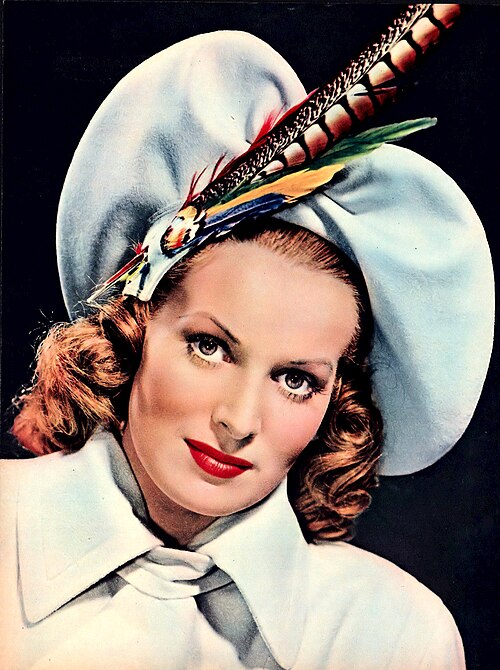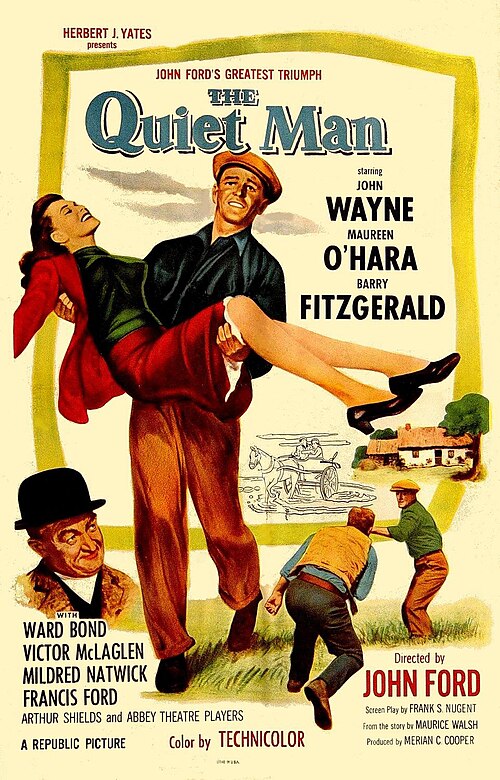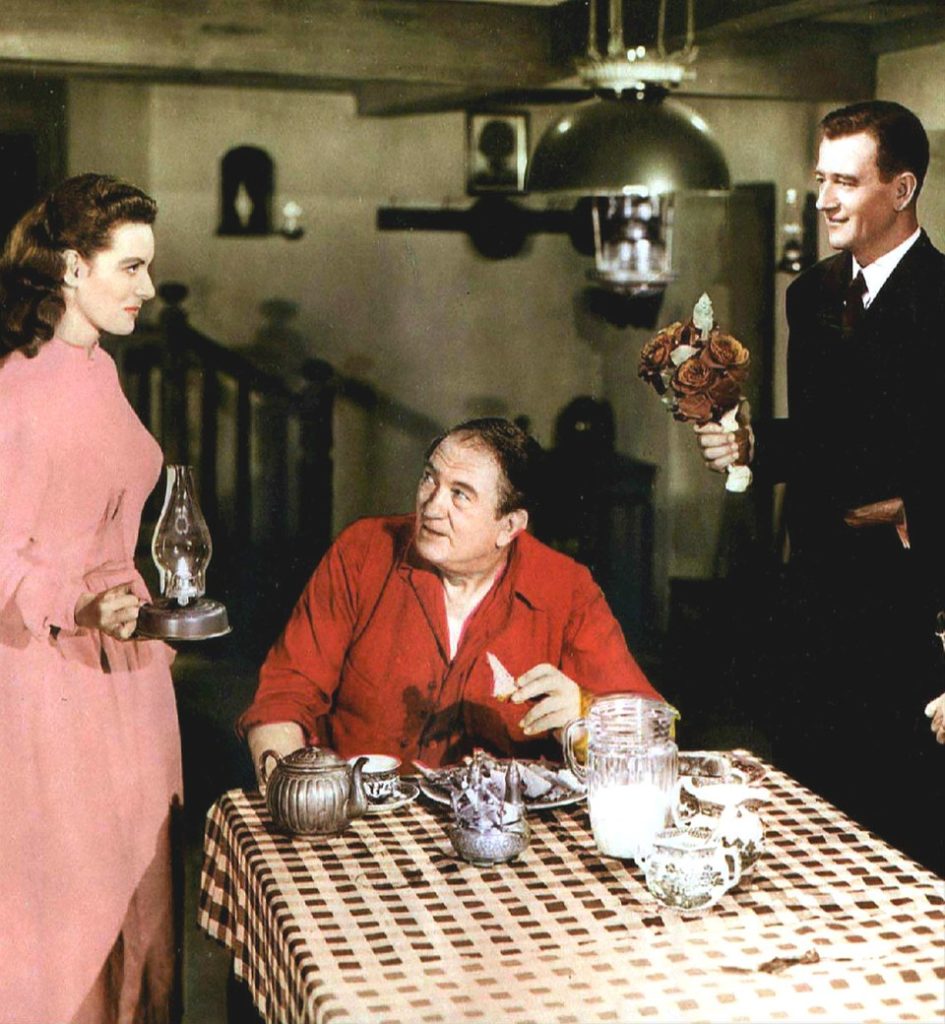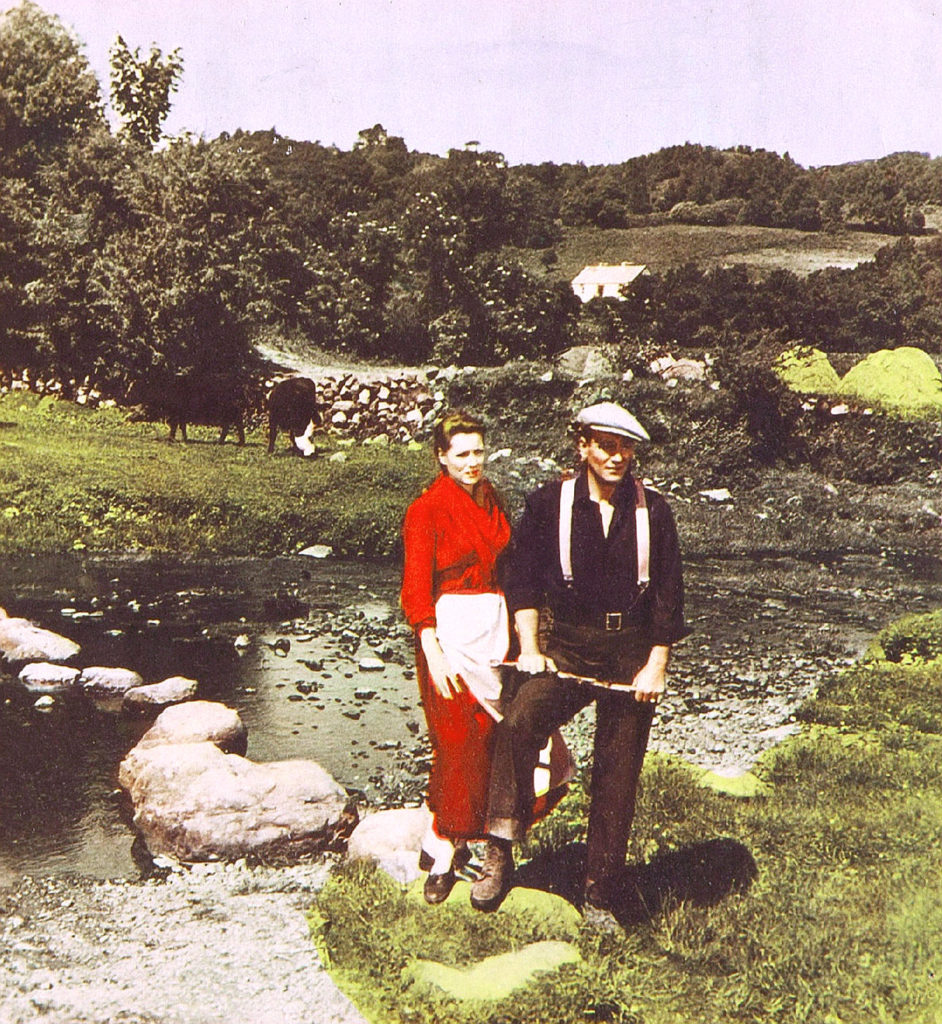ONE of Ireland’s most beloved cinema icons, Maureen O’Hara, took her final bow on October 24, 2015.
So how could her tenth anniversary come and go without any public tributes?
I had the great privilege to conduct the last major interview with “The Queen of Technicolor” when she was already a nonagenarian.
Amazingly, Maureen was still instantly recognisable as the feisty redhead from The Quiet Man. She oozed charisma and had an unmistakable twinkle in those piercing green eyes.
Still possessing a sharp mind, she had also retained her delightful feistiness and a quick tongue, reminiscent of her memorable onscreen verbal duels with John Wayne.
 Maureen O'Hara died on October 24, 2015
Maureen O'Hara died on October 24, 2015“You know what they say about old age? Old age is a terrible thing, particularly when it strikes you when you’re so young,” quipped Maureen, who could instantly disarm you with her legendary beguiling smile.
I reminded Maureen that as a little girl, she had dreamt of growing into a “wonderfully eccentric, tough, cantankerous, and sometimes mean old lazy who thumps her cane loudly” to express herself.
Maureen flashed me her famous thousand-watt smile. “I’m doing it right now. Oh, God!” she said, jokingly thumping her cane against the floor and then waving it dramatically in the air.
“And today in this world—and the world since the beginning of time—a woman has to be tough.”
Maureen looked me right in the eyes with her trademark steely glare. “I plan to live to 102,” she stated matter-of-factly.
The number wasn’t plucked out of the air – her late mother-in-law had lived to that age. “She was a fabulous woman from Donegal,” she said about her third husband, Charlie Blair’s mother.
Her plan to reach 102 might’ve been the only vow Maureen was unable to keep in her remarkable life. She passed away at the grand old age of 95.
 The Quiet Man poster
The Quiet Man posterThere were only two stipulations for granting this rare interview: firstly, I couldn’t broach her first two marriages, which was fine because they’d already been covered in her memoir.
Secondly—and perhaps even more intriguingly—I wasn’t to ask anything “too personal” about John Wayne.
She didn’t want to address persistent rumours of a love affair. After Maureen’s death, Wayne’s son revealed his father was in love with her.
Respecting these stipulations, I only brought him up casually. But her eyes told a story worth a thousand words by how they lit up at every mention of his name.
“He was a wonderful person. We were proud of our work and proud of ourselves,” she said.
She never tired of being asked about starring in the most famous Irish film of all time. “You’d be surprised at how many years it took to try to raise the money to make The Quiet Man,” she revealed. “It was a long time. We could never get the money anywhere. They’d laugh. They’d say, ‘Poor Irish!’”
It would never have been made if Rio Grande (1950) hadn’t been such a massive hit. “It was then that the head of this Republic Studios, when he heard all of that fuss going on, agreed to finance the movie,” she said.
Maureen was 17 when she was discovered by chance by the late Charles Laughton, whose production company signed her to a seven-year picture deal.
 Maureen with Victor McLagen and John Wayne in The Quiet Man (public domain)
Maureen with Victor McLagen and John Wayne in The Quiet Man (public domain)Soon she was starring alongside the English actor in The Jamaica Inn and The Hunchback of Notre Dame.
Did she ever wonder what direction her career might have gone in if she hadn’t met Laughton?
“No, I think I’d be exactly where I am. Maybe a little further,” she insisted with great gusto.
She hated that he forced her to change her surname for the big screen.
“He said, ‘Oh, no, that surname would be horrible up on a marquee— Maureen FitzSimons! We’re going to change it’.
“And I said, ‘Oh, no. I like my own name’. And that was it—take it or leave it. But Laughton was a wonderful person to work with.”
Maureen stunned Hollywood when she turned her back on it in 1973. It would be almost 20 years before she came out of retirement to star in the smash hit Only the Lonely.
“I gave up acting because John Wayne nagged me,” she explained. “He was playing chess with Charlie Blair, and I went out to see if they wanted anything to eat.
“And Duke said, ‘Don’t you think it’s about time you quit?’ And I said, ‘Okay, I quit’.”
Next, she ran an airline company with Charlie. “I never missed the films, as I was so involved with the airline business,” she insisted. “They say I was the only woman who was the head of an airline company. Oh, if you met Charlie Blair you’d say, ‘What a wise decision you made’.”
 Maureen with John Wayne in The Quiet Man
Maureen with John Wayne in The Quiet ManSadly, not long after their tenth wedding anniversary, Maureen’s world imploded when Charlie died in a plane crash in 1978
Maureen believed the decorated war hero had “never retired” from the US government and was, in fact, using their airline as a “secret fleet” for the CIA to fly reconnaissance missions to monitor Cuba.
“He was a very brave man,” she said on the verge of tears. “I never questioned my faith. I believed in God, and I still believe in God, but I did feel it was a terrible thing to happen to me.”
She rubbished the claim that time was a great healer.
“No. No. No,” her voice quivered. “You wouldn’t expect it to? I don’t. He was my soulmate.”
Maureen took great comfort from her belief in an afterlife.
“And thank God I’ve never doubted. I never thought I was going to go down [to hell], I was always going to go up. But you think, ‘What am I going to do? Who am I going to watch over? Who am I going to help? Who am I going to talk to God about?” she mused.
What was heaven going to be like for Maureen O’Hara?
“I hope all my wonderful relatives will be there. And I’ll be able to watch a couple of soccer games,” said Maureen, whose father was a part-owner of Shamrock Rovers.
Did she have any big regrets in life?
“I wanted to be an opera star. My older sister Peg won a scholarship as a soprano and gave it up to be a nun. And I wanted to write beautiful poetry. I always intended to do great things. I didn’t do all of the things I wanted to do,” she said.
How did she want to be best remembered?
“As an Irishwoman who made a success in the world and never let Ireland down. I’m very proud of being Irish,” she said.
“You’ve got to remember one thing that’s so important—when you’re Irish, you’re Irish. And nobody is better than you, or there is nowhere better than the country you came from.
“Ireland is one of the great countries of the world, and we have sent people out to every country in the world, and they’ve done famous things. I always wanted to do something important and big – be a great representative of Ireland.”
When I assured her that she’d left behind such a legacy and would always be remembered as a true ambassador for Ireland, Maureen modestly replied, “I hope so.”
It’s a crying shame there wasn’t a big song and dance made about her tenth anniversary – she deserved better.

